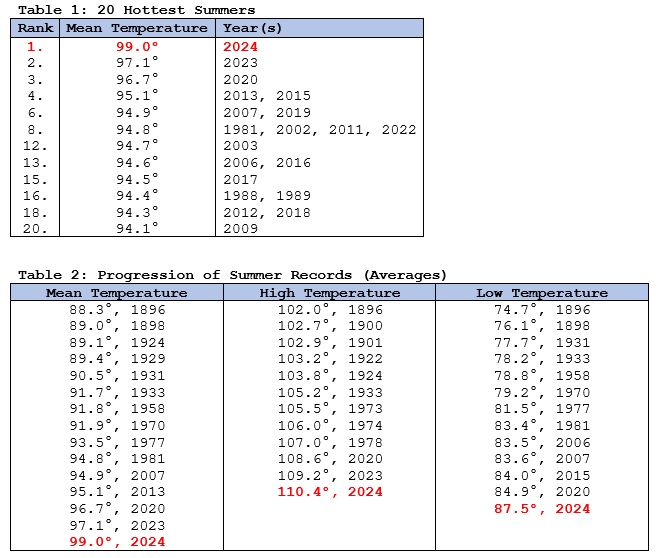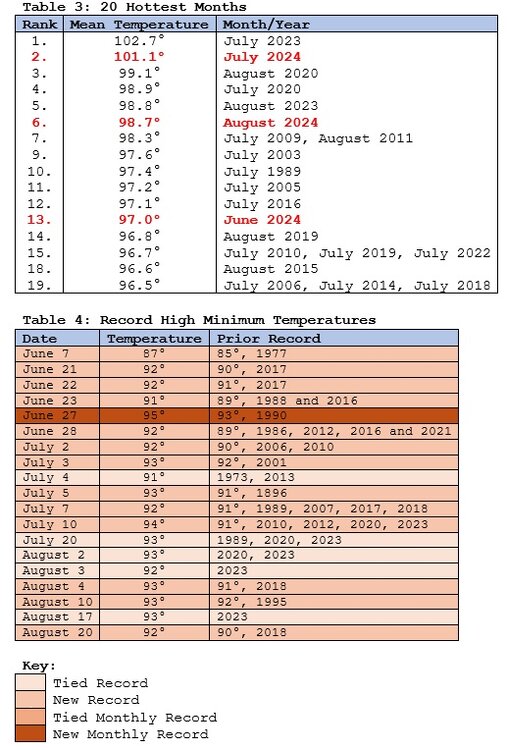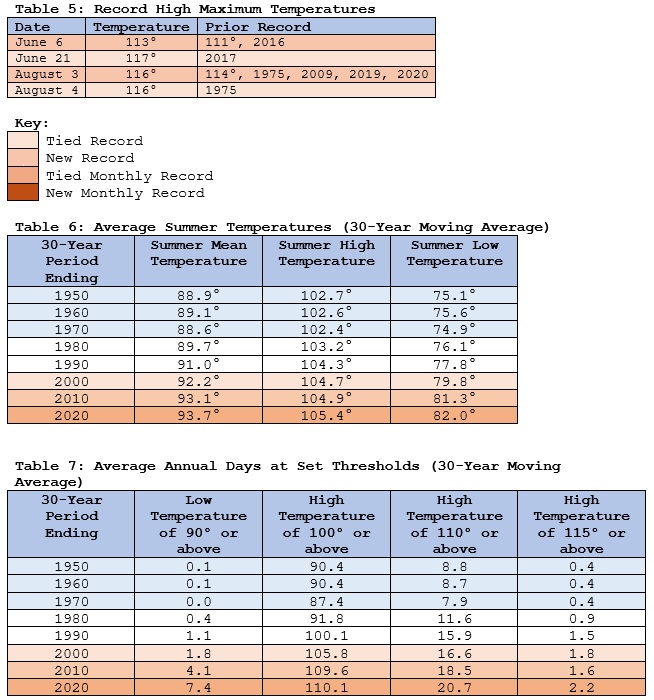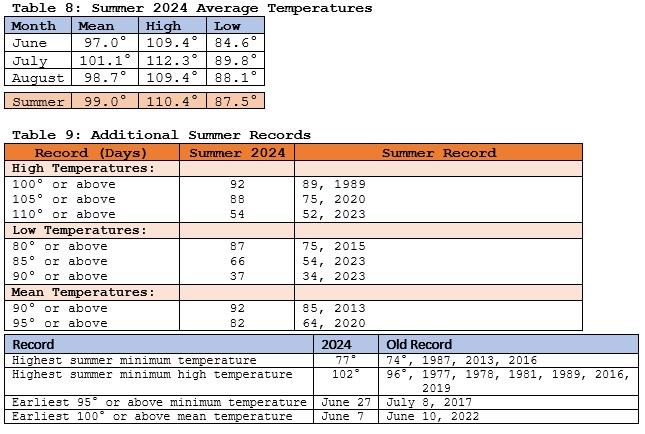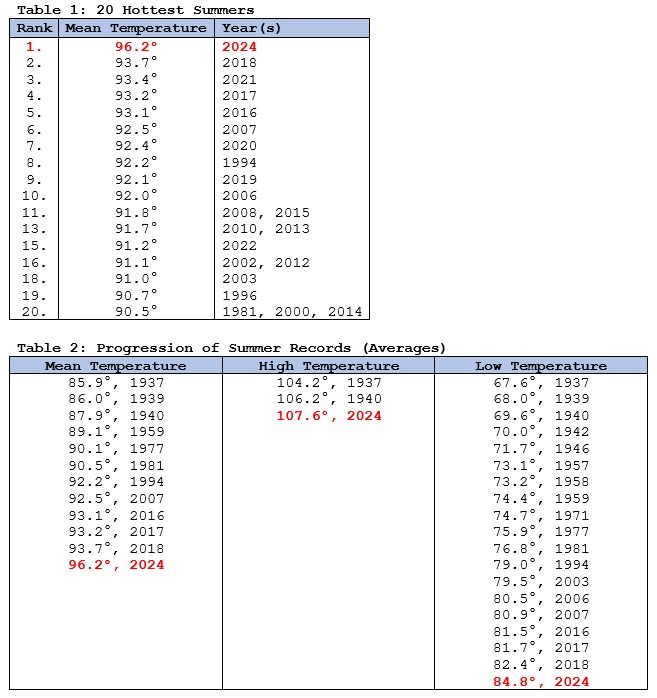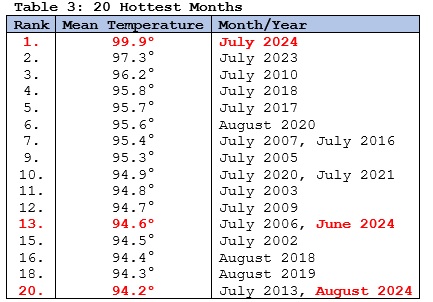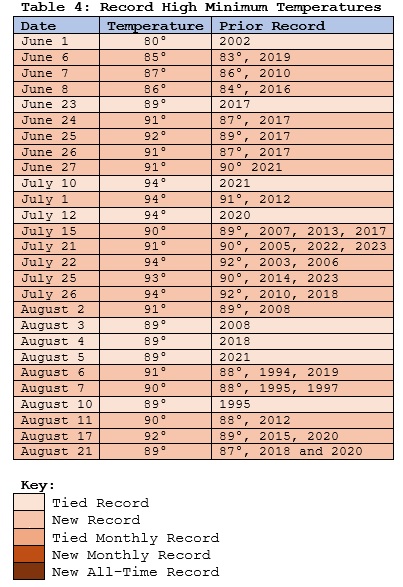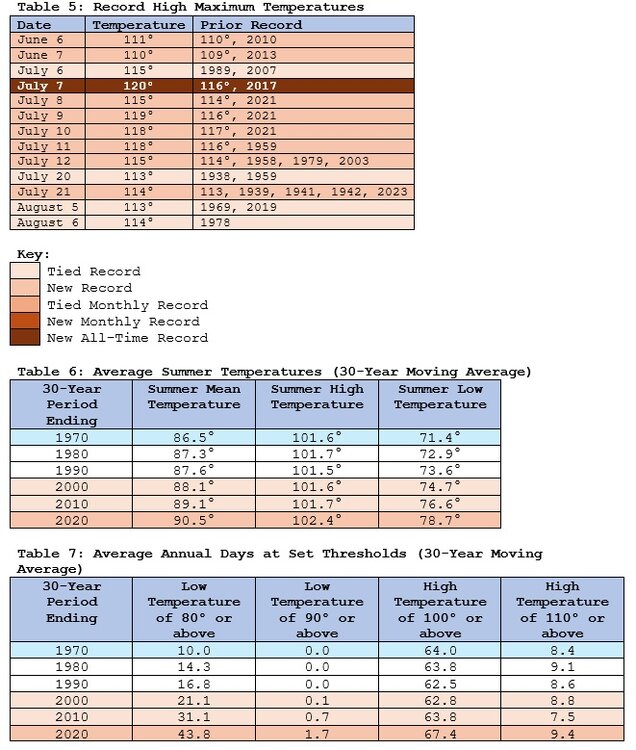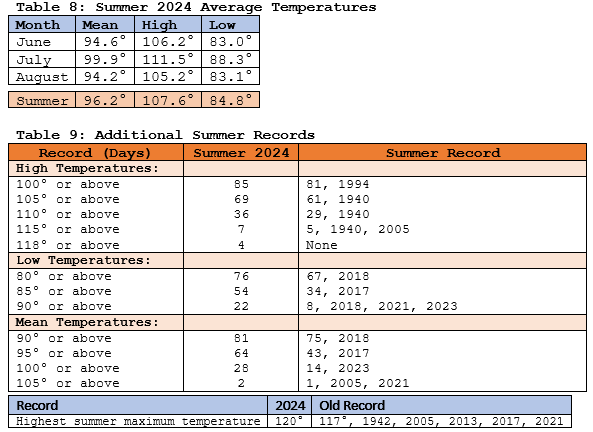Search the Community
Showing results for tags 'Record'.
-
In what has become a seemingly regular occurrence beginning in 2020, Phoenix has experienced its hottest summer on record. Since 2020, Phoenix has eclipsed the summer mark in 2020, 2023, and again this year. A major theme, as was the case in 2020 and 2023 when the heat set in, was its persistence. Summer 2024 got off to a blazing start with its hottest June, by far, on record. The sizzling June was followed by Phoenix’s second hottest July and second hottest month on record. July featured an 11-day extreme heat event (Clarke et al., 2014 methodology) during which the temperature reached or exceed 115° on six days. That was the second longest such event on record. Summer concluded with the third hottest August on record. On account of the historic heat, Phoenix saw its longest stretches of 80° or above lows, 100° or above highs, and 105° or above highs: 80° or above lows: 74 days, June 5-August 17; old record: 51 days, July 1-August 20, 2023 100° or above highs: 97 days (as of August 31 and ongoing); old record: 76 days, June 10-August 24, 1993 105° or above highs: 63 days, June 5-August 6; old record: 56 days, June 24-August 18, 2023 Anthropogenic climate change amplified by the urban heat island effect is driving a warming of Arizona’s and Phoenix's summers. Data from a joint May 2024 report published by Climate Central, Red Cross Red Crescent Climate Centre and World Weather Attribution revealed that the influence of climate change has resulted in a 231.1% increase in Arizona’s days with temperatures above the 90th percentile (1991-2020 baseline) over the figure expected without the influence of climate change. The warming has accelerated in recent decades. Between 1950 and 2023, summers have warmed by 0.6° per decade in Phoenix. Since 1980, summers have warmed by 0.9° per decade. As a result, Phoenix has set summer records in 2020, 2023, and now 2024. As a result, the annual number of days on which the high temperature has exceeded the 90th percentile for summer maximum readings (1991-2020 baseline) has increased from 6.5 days during 1961-1990 to 9.99 days during 1991-2020. The most recent 30-year moving average (1995-2024) is 12.7 such days per year (through August 31, 2024). Select highlights: Updates: Phoenix records 100th 80° low temperature of the year Progression of Phoenix's Record Streak of 100° Highs Phoenix and Surrounding Area 100° Highs and 80° Lows U.S. Sites with 110 or More Consecutive 100° Highs and Population Hottest Last 7 Days of September Phoenix Experiences its Hottest September on Record Phoenix's Extreme September 28th and October 1st High Temperatures Phoenix Experiences its Hottest First Week of October on Record Phoenix Sets or Ties Daily High Temperature Records on an Unprecedented 21 Consecutive Days Climate Change not the Urban Heat Island Effect drove Phoenix's Record Autumn Heatwave Southwest Region Summer Trends Phoenix Follows its Hottest Summer with its Warmest Fall on Record Phoenix Caps Off its Warmest Year with Its Warmest December on Record
-
After a brief hiatus following three consecutive record hot summers (2016-2018), Las Vegas demolished its summer heat record. Summer 2024 got off to a blistering start with its hottest June on record. July became that City’s hottest month on record. August also became its hottest August on record. July featured a 12-day extreme heat event (Clarke et al., 2014 methodology) during which the temperature reached or exceed 115° on a record seven consecutive days. That extreme heat event was highlighted by Las Vegas’ hottest reading on record (120°) and three other temperatures that surpassed the old all-time mark of 117°. On account of the historic heat, Las Vegas saw its longest stretches of 80° or above lows, 105° or above highs, 110° or above highs, and 115° or above highs: 80° or above lows: 63 days, June 21-August 22; old record: 33 days, July 4-August 5, 2020 105° or above highs: 43 days, June 20-August 1; old record: 25 days, June 15-July 9, 2017 110° or above highs: 11 days, July 3-13; old record: 10 days, June 17-26, 1961 and July 14-23, 2023 115° or above high: 7 days, July 6-12; old record: 4 days, July 16-19, 2005 Anthropogenic climate change amplified by the urban heat island effect is driving a warming of Las Vegas’ summers. The warming has accelerated in recent decades. Between 1950 and 2023, summers have warmed by 0.8° per decade in Las Vegas. Since 1980, summers have warmed by 1.0° per decade. Select highlights:


